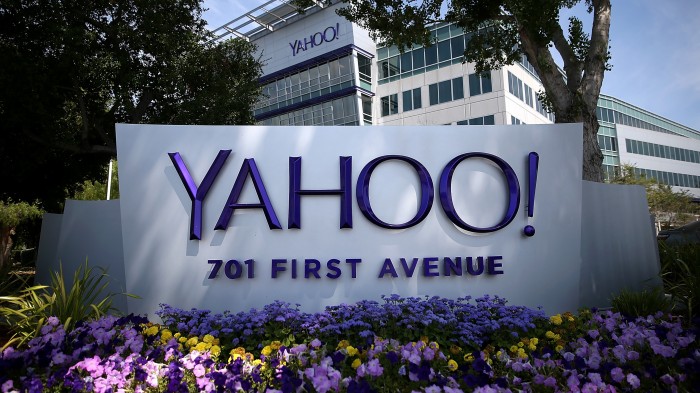What Yahoo Got Right
News that Yahoo’s Internet business will be sold to Verizon for $4.8 billion marks the end of the failed effort by CEO Marissa Mayer to revive a company widely seen as dysfunctional and outdated. But the history books will also record that Yahoo made lasting contributions to how the Internet works. Here are three things Yahoo got right.

The financial foundations of the Internet
Yahoo was incorporated early in 1995, and by late the next year turned its first profit—a timeline just about unthinkable for an Internet startup today. The company grew profits and revenues fast in its early years by helping establish the basics of online advertising, the business model that dominates the Internet. One example is how in 1996 Yahoo agreed to charge consumer goods giant Procter & Gamble only when people clicked on ads, not just when an ad was displayed, an early move toward the complex tracking and targeting used by online ads today.
Big data plumbing that keeps the world running
Facebook, the U.S. government, and countless other organizations rely on software gifted to the world by Yahoo to manage and analyze giant data stores. Hadoop, as the software is called, started life in 2006, when Yahoo hired two software engineers working on a new system for big data inspired by white papers released by Google. Before long Yahoo was using Hadoop internally, and in 2008 the company released the software as an open-source project. Many companies have since been built on Hadoop, or built to sell services based on it. Intel, Google, and T. Rowe Price have all invested in one leading Hadoop company, Cloudera, which is valued at roughly $4 billion—about the same as the parts of Yahoo being acquired by Verizon.
Spotting the vast potential of the Chinese Internet
In 2005 Yahoo cofounder and CEO Jerry Yang made a risky looking $1 billion investment that has been called the most lucrative in Silicon Valley history. He bought 40 percent of a small Chinese e-commerce startup called Alibaba, which in the years since has grown into the world’s largest retailer. Yang’s bet on Alibaba has helped keep Yahoo afloat in recent years, but ultimately forced this week’s sale to Verizon. The roughly $25 billion stake in Alibaba dwarfs the company’s other assets and businesses. But Yang’s investment in the company was smart because he correctly identified a huge trend in the future of the Internet. Companies such as Alibaba and Baidu that grew up with China’s vast Internet population are increasingly looking to expand beyond the country’s borders.
Keep Reading
Most Popular
Large language models can do jaw-dropping things. But nobody knows exactly why.
And that's a problem. Figuring it out is one of the biggest scientific puzzles of our time and a crucial step towards controlling more powerful future models.
How scientists traced a mysterious covid case back to six toilets
When wastewater surveillance turns into a hunt for a single infected individual, the ethics get tricky.
The problem with plug-in hybrids? Their drivers.
Plug-in hybrids are often sold as a transition to EVs, but new data from Europe shows we’re still underestimating the emissions they produce.
Google DeepMind’s new generative model makes Super Mario–like games from scratch
Genie learns how to control games by watching hours and hours of video. It could help train next-gen robots too.
Stay connected
Get the latest updates from
MIT Technology Review
Discover special offers, top stories, upcoming events, and more.